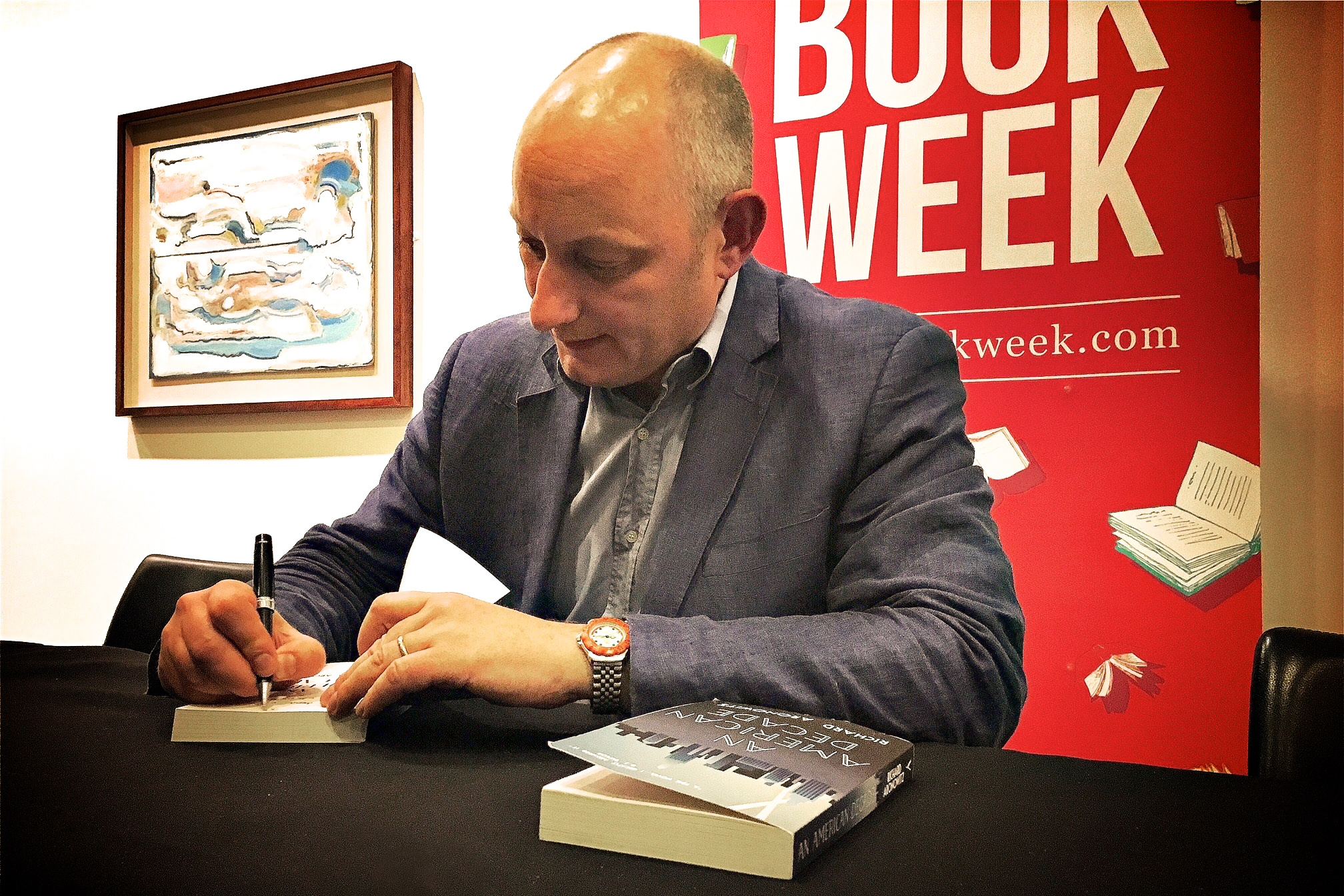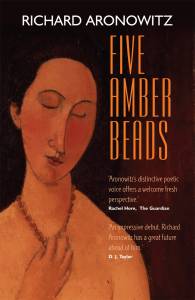
Five Amber Beads
Subtitle
Five Amber Beads is the story of two men whose lives are woven together as they seek to discover the truth about their pasts. Charley Bernstein works in the London art world and is tracing a family history erased by the Holocaust. In his possession is a diary written by a relative in a labour camp during the Third Reich, and Charley must follow the threads leading from its haunting pages to his own present.




In New York an old man is found lying semiconscious on the pavement. There are no witnesses to what has happened to him and he has no form of identification. When he wakes up in a hospital bed he finds he doesn't recognise the city or his own skin. In a state of total amnesia, he must embark on a struggle to regain his memory.
When fate brings these two men together they find themselves linked by a unique friendship. Their journey takes them from America to the Middle East and England in an enthralling and moving novel that addresses the nature of identity and belonging.






Financial Times
“Richard Aronowitz’s Five Amber Beads is another first novel, and a good one. Charley Bernstein, the narrator, is an art detective who tracks down paintings stolen by the Nazis. His mother came to England as a Kindertransport refugee and married an Englishman. Charley has assumed his mother’s Jewish surname (“amber” in German). In New York, after an accident, he wakes up in a ward with an old man who has lost his memory. He is European, perhaps German, and was clearly involved in the Second World War. But how? [Five Amber Beads] is as much autobiography as fiction – which is how it reads. Very effectively.” John Sutherland, The Financial Times, 2006
The Guardian
Questions of identity inform this tender debut. Narrator Charley Bernstein, a London art whizz hired to investigate the legal ownership of paintings offered for sale, is holed up in a New York hospital following a road accident. There he befriends an elderly fellow patient, "Christopher", who was scooped up off the street with neither papers nor memory. Back on his feet, Charley decides to help the confused man, not least because he, too, is researching his own origins. His mother Eva, a German Jew who travelled to England on the Kindertransport in 1939, has recently died. From among her papers emerges a secret diary written in a labour camp by the only family survivor of the Holocaust, her uncle Isy. Haunting extracts from the diary are interwoven skilfully with Charley's reflections as he and his wife accompany Christopher on a journey into the past. Familiar subject matter, perhaps, but the writer's distinctive poetic voice offers a welcome fresh perspective.
The Spectator
Amnesia plays a role in Richard Aronowitz’s début, too. In Five Amber Beads Charley Bernstein, an English art expert in his thirties, spends time in a New York hospital after being hit by a car. There he meets ‘Christopher Street’, an elderly patient who was found semi-conscious on a sidewalk, with no witnesses around to provide a clue as to how he got there, no identification, and, worst of all, no memory (his ‘name’ happens to be that of the place where he was found). Charley and Christopher become friends, and when Charley recovers and departs for England, he agrees to help Christopher in any way he can.
The first of the novel’s two strands involves Charley’s attempts to deliver on his promise. He gets hold of a fake passport for Christopher (who may not apply legitimately for a passport since he does not know his own personal details), and plans his illicit escape. The second strand concerns a diary written by Charley’s great-uncle Isy, who was interned in a concentration camp during the second world war but, thanks to his leadership qualities, was given a supervisory role over his fellows. Though separated by 60 years, Isy’s and Christopher’s quests for identity are closely bound, and Aronowitz portrays with elegance and thoughtfulness what it means to lose one’s sense of self.
The first of the novel’s two strands involves Charley’s attempts to deliver on his promise. He gets hold of a fake passport for Christopher (who may not apply legitimately for a passport since he does not know his own personal details), and plans his illicit escape. The second strand concerns a diary written by Charley’s great-uncle Isy, who was interned in a concentration camp during the second world war but, thanks to his leadership qualities, was given a supervisory role over his fellows. Though separated by 60 years, Isy’s and Christopher’s quests for identity are closely bound, and Aronowitz portrays with elegance and thoughtfulness what it means to lose one’s sense of self.
The Independent
"…Aronowitz knows the art world milieu particularly well having worked as an Impressionist and Modern art researcher at Sotheby's. The role of cataloguing masterpieces is one of detection: pinpointing the moment that Picasso doodled to the roar of the bull ring or Pollack traded a drip painting for the less abstract pleasures of a crate of beer and then mapping the work's trajectory from its origins to the auction room. Aronowitz uses the same skills to trace the secret provenance of his characters and in doing so infuses them with a greater understanding and a context for their existence. It's an effective way of dealing with such infamous events. After several cinematic treatments, and the literary success of Bernhard Schlink's The Reader and Jonathan Safran Foer's Everything is Illuminated, one might wonder whether fiction has anything new to say about the Holocaust. Through his shimmering use of the language of art Aronowitz has shown that it has.…"
More reviews
Jewish Book Council
https://www.jewishbookcouncil.org/book/five-amber-beadsDonald Weber
“Richard Aronowitz’s beautiful memory novel, Five Amber Beads, [is] inspired by his foreign-born mother’s “refusal to bow to the tight-lipped path through life of her adopted country.”Donald Weber, eminent US literary scholar
https://www.jbooks.com/interviews/index/IP_Weber_English.htm









